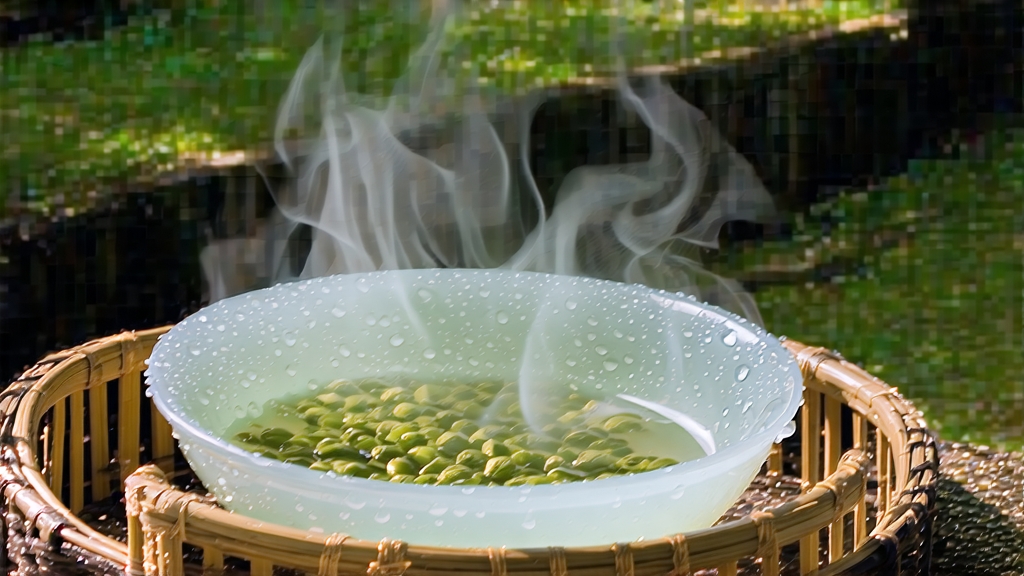
Tucked between the mist-laden banks of Lake Tai and the Dongting hills of Jiangsu Province, Biluochun—literally “Green Snail Spring”—has captivated Chinese scholars, emperors, and poets since the late Ming dynasty. Legend claims that a tea-picking girl once hid the tender leaves in her bodice; warmed by her body heat, the leaves curled into tight spirals and exhaled an intoxicating perfume that startled even the mountain birds. Whether myth or marketing, the story captures the essence of Biluochun: delicacy, aroma, and a shape so miniature that seven thousand buds yield barely one pound of finished tea.
Historical records first name the tea “Xia Sha Ren Xiang” (“Scary-Fragrant”) during the reign of the Kangxi Emperor (1661-1722). When the emperor tasted it in 1675, he found the name inelegant and rechristened it Biluochun, referencing its snail-like curl and spring harvest. By the Qianlong era it had entered the imperial tribute list, and the Qing court consumed it with such enthusiasm that Suzhou prefecture could not meet demand without clandestine night-time firings. Republican-era merchants carried it down the Grand Canal to Shanghai’s foreign concessions, where European diplomats compared its aroma to French jasmine and Italian early-morning meadows. Today, Biluochun remains one of China’s Ten Famous Teas, protected by both a national geographical indication and a 2002-origin standard that restricts the authentic appellation to the Dongting East and West Mountains in Wuzhong District.
Although all Biluochun belongs to the green tea category, micro-climates and cultivar choices create three recognized styles. The original “Dongting Mountain Traditional” uses the small-leaf “Biluochun Qunti” landrace, still propagated by seed and prized for its white-haired buds. A second style, “Suzhou Early-Sprouting,” grafts the Fuding Da-bai cultivar onto local rootstock, yielding larger buds ten days earlier but sacrificing some complexity. The third, “Wannan Spirals,” transplants the craft to southern Anhui’s highlands; the cooler nights slow growth, intensifying amino acids and giving a creamier liquor. Purists insist only the Dongting micro-zone delivers the tea’s signature “flowery fruity” note, yet each variant offers a lens on how terroir shapes the same artisanal protocol.
Crafting Biluochun is a race against dawn. Pickers climb terraced sweet-olive and loquat groves between 5 a.m. and 9 a.m., when leaf moisture is 78-80 % and mountain mist diffuses sunlight. The standard is ruthless: one bud plus an unfolding leaf no longer than 2.5 cm, snapped with a downward tug that leaves the stem square and white tip intact. A seasoned picker gathers barely 500 g per hour; 6.5 kg of fresh leaf shrink to 1 kg after the six-hour marathon that follows.
Withering is implicit: the short donkey-cart ride to the village workshop doubles as a gentle dehydration. Once weighed, the leaves are “sha-qing” or kill-green in a 180 °C wok for precisely 40-60 seconds. The master’s bare hand flips the leaf mass clockwise, counter-clockwise, then presses it against the iron wall to halt oxidation enzymes. Temperature is judged by ear: too low and the grassy note lingers; too hot and the buds yellow like over-toasted sesame. Next comes “cuo-tuan,” the spiral-forming step that gives the tea its name. Working above a 70 °C wok, the crafter rubs a palm-full of leaves along the rim in a figure-eight motion, curling them into tight spirals while rupturing 12-15 % of cell walls—enough to release sap that will caramelize into honeyed aroma. The cycle repeats three times with 15-second cool-down intervals, each reduction in heat locking in volatile aromatics. Final drying drops the moisture to 5-6 % using charcoal embers covered only by a thin bamboo mat; the tea leaves the workshop at dusk, still warm to touch and smelling faintly of apricot.
Brewing Biluochun is an exercise in restraint. A 200 ml celadon gaiwan or tall glass is ideal; metal strainers rob the liquor of downy hairs that contribute texture. Use 3 g of tea—roughly two level teaspoons—for water at 75